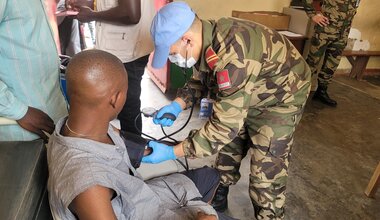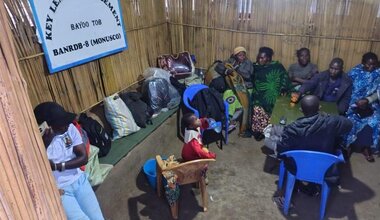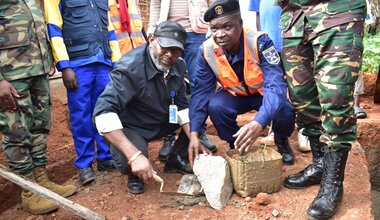Hate Speech: Digital Actors from Eleven African Countries Met in Douala
Douala, the economic capital of Cameroon, hosted from Tuesday 26 to Friday 30 October 2021, a regional forum to raise awareness and build capacities for media and communication regulatory outlets on the prevention of hate speech-related conflicts and fight against this plague in Central Africa.
These meetings brought together journalists and social network actors from eleven Central African countries, namely the DRC, Angola, Cameroon, Gabon, Equatorial Guinea, the Central African Republic, the Republic of Congo, Sao Tome -and-Principe, Chad, Rwanda and Burundi.
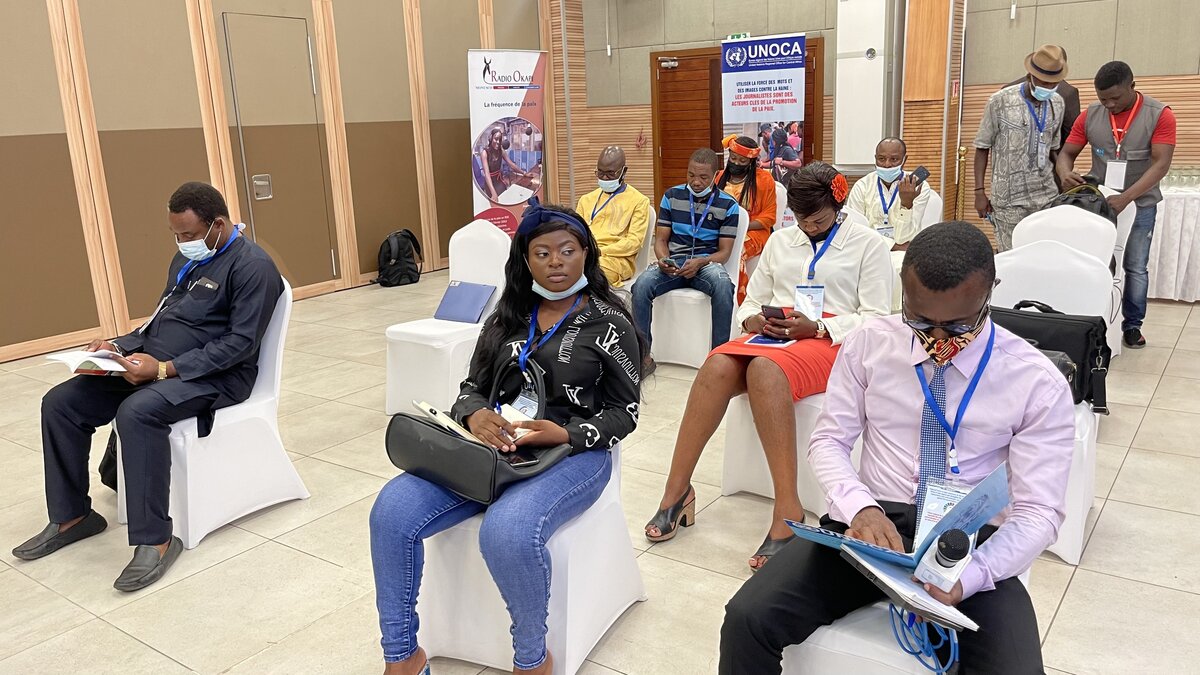
The forum was organized based on the observation that some media outlets in Central Africa could be held responsible for broadcasting programs promoting hateful and manipulative speech, as well as violence-inciting words.
It is in line with the United Nations Strategy and Plan of Action against Hate Speech officially launched by Secretary General Antonio Guterres in June 2019 and the New York Declaration for Refugees and migrants adopted in 2016.
Two speeches marked the opening ceremony of this regional forum on the fight against hate speech within the Central Africa’s media outlets organized by the United Nations Regional Office for Central Africa (UNOCA) and the Economic Community of Central African States (ECCAS), in collaboration with the Cameroonian government, the United Nations Center for Human Rights and Democracy in Central Africa (CNUDHD-AC), the United Nations Joint Human Rights Office in DRC (BCNUDH), the United Nations Stabilization Mission in the Democratic Republic of the Congo (MONUSCO) and UNESCO.
In his welcoming remarks, the executive director of the Cameroonian association of media professionals, Tabe Taryang, the first to take the floor, on behalf of the Cameroonian delegation present at this forum, first and foremost, welcomed the participants from the different countries and institutions, wishing them a pleasant stay in Cameroon.
He then thanked the organizers of this innovative summit which aimed to eradicate the negative consequences generated by the hate speech in a conflict-prone sub-region. As far as he is concerned, this workshop is of paramount importance for journalists as it comes at a time when hatred has pervaded the media in the Central African sub-region
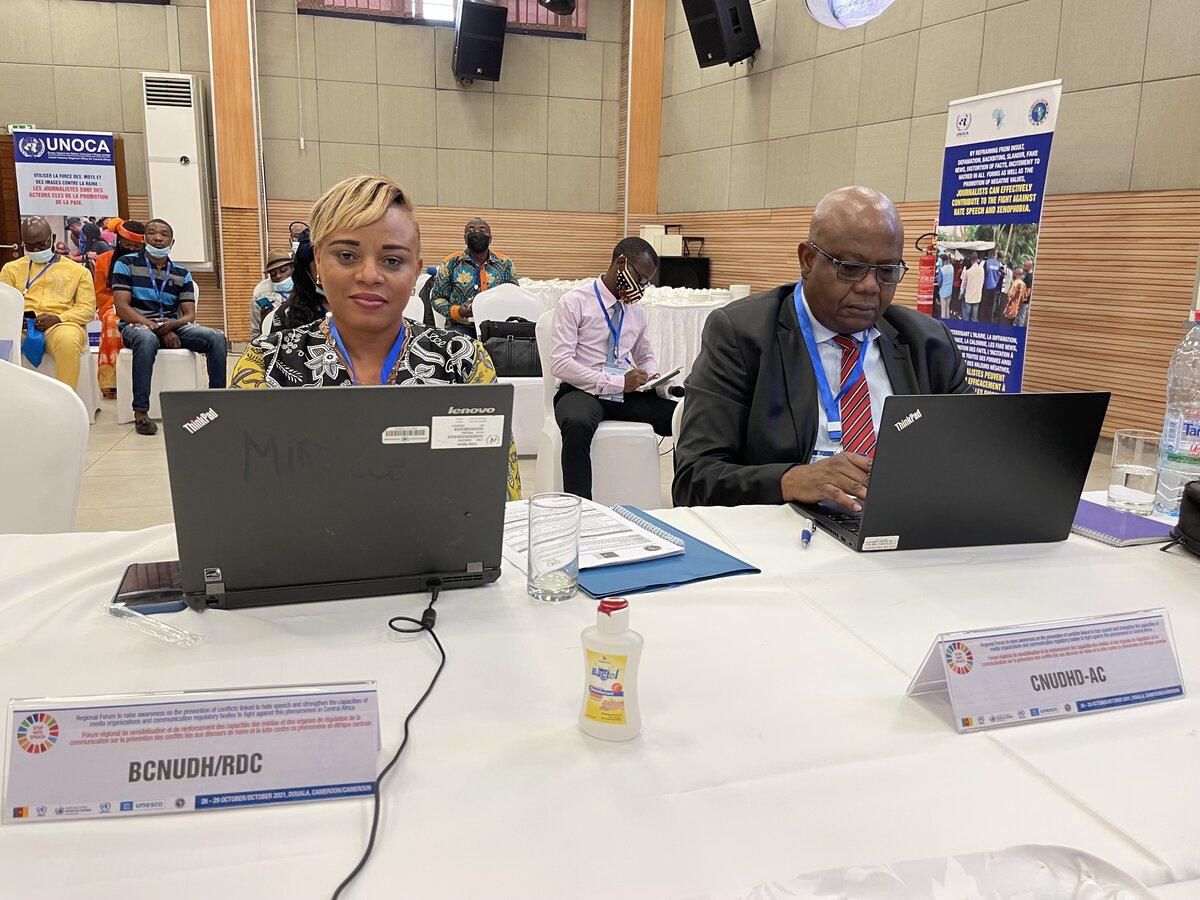
On behalf of all the United Nations entities attending at the forum, the Special Representative of the United Nations Secretary-General for Central Africa, François Louncény Fall, in his opening remarks, made a historical recall of the harmful role played by some media outlets in the crises in Central Africa, in particular the genocide against the Tutsis, in Rwanda in 1994 with the major contribution of the infamous Radio-Television broadcast known as the “Mille Collines and the newspaper Kangura, which stirred up hatred against the Tutsis and the moderate Hutus, pushing for their extermination.
François Louncény Fall painted a grim picture of the situation in Central Africa, especially in the States beset by armed conflicts, also referring to other violent crises or tense electoral processes. According to him, the scourge of hate speech lurks all the countries of Central Africa and hate speech is used as a weapon by many protagonists, citing cases such as the presidential elections in Gabon in 2016, in Cameroon in 2018 and in the Democratic Republic of Congo (DRC) in 2019, which, among other things, gave rise to a flare-up of community hatred targeting the groups from which some candidates were members of. He went on to report that in the tragedy Central African Republic (CAR) has been going through, for almost a decade, people have been targeted and slaughtered based on their ethnic or religious affiliation. In Chad, the inter-communal conflicts which increasingly oppose agricultural and pastoral communities, particularly in the south, center and east, often give rise, through social networks, to the exacerbation of the hate discourse.
Wishing participants successful interactions, the Special Representative of the Secretary-General said the media outlets indeed have a major role to play in preventing hatred. They can prevent and combat hate speech simply by doing their job in compliance with rules of their noble art.
The meeting had three objectives, namely: to take a stock of all the initiatives aimed at preventing and combating hate speech in Central Africa; to set up a platform for reflection in a context of the poor regulation and self-regulation tools; to initiate a discussion on the development of a regional strategy for preventing and combating hate speech in the media, pursuant to the implementation plan of the UN strategy.
Participants should share their experiences and best practices in the fight against hate speech and xenophobia. The forum shall issue proceedings to provide stakeholders with a tool to se as a practical guide against hate speech.
 UN
UN United Nations Peacekeeping
United Nations Peacekeeping




